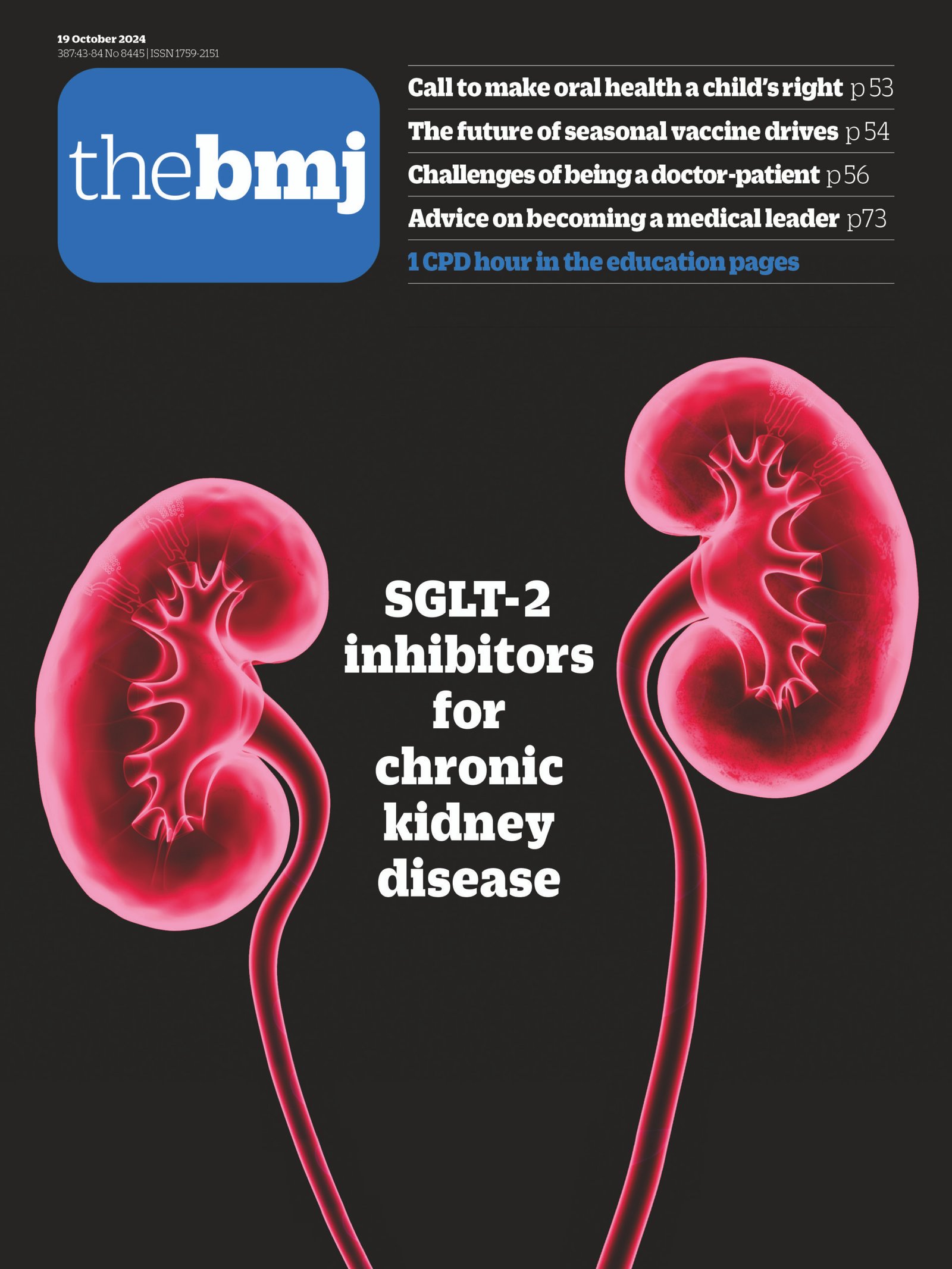- Elaine Mulcahy, director,
- Richard Smith, chair
- Correspondence to: E Mulcahy elaine.mulcahy{at}ukhealthalliance.org
In November, the 2024 United Nations climate change conference (COP29), will take place in Azerbaijan, a country where fossil fuels account for two thirds of its economy.1 Attendees will gather after a northern hemisphere summer that was the hottest ever recorded, with predictions that 2024 temperatures will reach 1.57°C above pre-industrial levels.2 The 2016 Paris Agreement3 committed countries to keep “the increase in the global average temperature to well below 2°C” and pursue efforts “to limit the temperature increase to 1.5°C above pre-industrial levels.” However, a recent survey of authors of the reports of the Intergovernmental Panel on Climate Change found that most are sceptical that warming will be kept well below 2°C.4
The past year has seen the health and livelihoods of millions of people around the world severely affected by extreme weather. Heatwaves across South and Southeast Asia resulted in school closures and deaths from heatstroke. Rains and flooding in Brazil led to 100 deaths and hundreds reported missing or injured.5 Floods in Kenya displaced more than 200 000 people.6 Canadian wildfires drove towns to evacuate. A cyclone forced almost one million people in Bangladesh and India to evacuate.7 In the US, a state of emergency was declared and millions ordered to evacuate as Hurricane Milton made landfall in Florida.8
Two issues will dominate and test COP29: hastening the transition from fossil fuels to renewable energy and high income countries increasing financial support to vulnerable countries. Lower income nations, which are most exposed but have contributed the least to climate change, are proposing four priorities: ambitious new climate finance goals, more ambitious climate action plans, accelerated adaptation efforts and finance, and a sufficient response package for the loss and damage they have experienced.9
Fossil fuels account for around four fifths of global energy supply,10 are the main cause of global warming, and cause major damage to health, not least in contributing to seven million premature deaths a year from air pollution.11 Yet fossil fuels did not feature in the calls for action that resulted from COP meetings until the Glasgow COP in 2021.12 In 2020, countries responsible for 93% of all CO2 emissions provided net direct fossil fuel subsidies of $305bn,13 more than three times the $80bn climate finance provided to developing countries.14 The 2021 Glasgow pact marked a minor breakthrough, with a call for countries to accelerate “efforts towards the phase down of unabated coal power and phase-out of inefficient fossil fuel subsidies.”12 But it had little impact.
In the following year global fossil fuel investment increased by 10%, reaching more than $1tn.13 COP27 saw no progress, but COP28 ended with a call for governments to “transition away from fossil fuels.”15 While this was a welcome step, it lacked detail. COP29 will be judged by the detail in commitments to phasing out fossil fuels. The UK foreign secretary, David Lammy, has said that the climate and nature crisis is the issue that “defines our times” and that “action on the climate and nature crisis will be central to all that the Foreign Office does.”16 His priority is to build a “global clean power alliance” with the shared goal of “making net zero power a reality, everywhere.”
Support for vulnerable countries
The second issue on which COP29 will be judged is financial assistance from high income countries to vulnerable countries. Again progress has been woefully slow. A loss and damage fund was established at COP27, but this was more than 30 years after the first call for a fund and falls way short of what is needed. At COP28 wealthy nations committed just over $700m to the fund, which is less than 0.2% of the $400bn a year that is needed.17Harjeet Singh, the head of global political strategy at Climate Action Network International, described the “meagre contributions” as a signal of “persistent indifference to the plight of the developing world.”17
Nobody can escape the climate and nature crisis, and it is in the interest of high income countries to support vulnerable countries. Health editors from around the world have twice called for high income countries to recognise the moral necessity as well as their self-interest to meet the needs of vulnerable countries.1819 This will not be easy with the US absorbed in an election, hard right populists flourishing in Europe, and the UK about to experience a cost cutting budget.
Every COP has been followed by a rise in emissions of greenhouse gases, and in 2023 more than 300 health editors warned that we are facing a global public health emergency.20 Yet health didn’t feature in the core agenda of the first 27 COPs. COP28 adopted a declaration that acknowledges “the benefits for health from deep, rapid, and sustained reductions in greenhouse gas emissions, including from just transitions, lower air pollution, active mobility and shifts to healthy sustainable diets” and that good health is “an outcome of successful adaptation across a range of sectors—including food and agriculture, water and sanitation, housing, urban planning, health care, transport and energy.”21
The biggest benefits to health will flow from drastic cuts in fossil fuels, rapid transition to renewable energy, and wealthy countries providing much greater support to vulnerable countries. The whole world is watching COP29 and needs to see it make real progress.
Footnotes
-
This editorial is being published simultaneously in the Lancet.
-
Competing interests: We have read and understood BMJ policy on declaration of interests and have no interests to declare.
-
Provenance and peer review: Not commissioned; externally peer reviewed.

